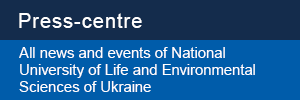Scientific Innovations
Department of Philosophy provides training of PhD students in Philosophy (specialty 033 “Philosophy”)
Priority areas of scientific research
The activity of the department is aimed at high-quality provision of the educational process and development of new approaches to the methodology of the historical-philosophical process, the role of philosophy in the system of philosophical knowledge. The scientific activity of the department is focused on the study of a wide range of philosophical problems in order to implement a new approach to teaching philosophy in accordance with the requirements of the Bologna system.
Members of the Department of Philosophy work on the scientific-methodical theme: “Contemporary Philosophy of Science and Education: Problems of Humanitarian Discourse”. Five main areas of scientific research are:
1. Philosophical analysis of the problems of philosophy of science and innovation development as a special type of humanitarian knowledge and as a discipline; the prospects for its development and interaction with other spheres of society.
2. Problems of mastering, dissemination and introduction of innovations in the system of higher pedagogical education. Philosophical analysis of innovation activity reveals the specificity of innovations in higher education; substantiates the paradigm for its innovative development, in which the emphasis is not on the method of transfer, but on the method of production of knowledge.
3. Prospects for the development of the Ukrainian nation in a multicultural environment. The urgency of the topic is due to the dynamism of the global political process; the change in the balance of power between world political and economic centers, as well as the geopolitical location of Ukraine; the need for its cultural and civilization self-determination in the world.
4. Philosophical problems of the development of natural sciences.
5. The worldview dimensions of leadership in the 21st century. The ideological basis of the phenomenon of leadership, effective leadership in a globalized world, the concept of servant leadership and team leadership is explored.
Research work
The initiative theme “Contemporary Philosophy of Science and Education: Problems of Humanitarian Discourse” includes the main directions of scientific research of the Department of Philosophy. Within it, dissertation research projects are conducted; monographs, manuals and scientific articles are published.
“Contemporary Philosophy of Science and Education: Problems of Humanitarian Discourse” theme was launched in 2016. In 2018, due to the urgency of the topic through the lens of today’s challenges, work on it was continued until 2021. During the last 5 years, 8 dissertation researches (7 Ph.D. dissertations and 1 Doctoral dissertation) were completed; 6 monographs, 25 articles in journals indexed in Scopus and Web of Science, as well as more than 100 articles indexed in Index Copernicus were published.
Scientific Schools of the Department of Philosophy and International Communication
Professor Leonid Chekal scientific school “Actual Problems of Philosophy of Science and Innovation Development in the System of Modern Education”.
Professor Mykola Maxiuta scientific school “The Personhood of the Synthesis of the Postmodern Scientific Culture and Historical-Philosophical Intentions of Civil Society”.
Student Research Groups
Student research groups are student-run organizations whose main purpose is to encourage student interaction with research. The members of the Department of Philosophy transfer the skills of scientific research through fellowship, awareness and meetings.
There are 8 groups:
1. “Sophia” – supervisor V. Kultenko.
2. “Oriy” – supervisor M. Maxiuta.
3. “The Essence of Human” – supervisor O. Lauta
4. “Know Thyself” – supervisor A. Suprun.
5. “Philosophical Problems of Interpersonal and Intergroup communication” – supervisor S. Geiko
6. “Logos” – supervisor D. Chornomordenko.
7. "Actual problems of international relations" – supervisor A. Goltsov.
8. "Key to the truth" – supervisor T. Kichkiruk.





